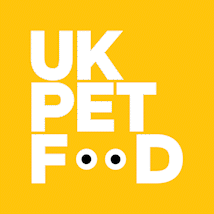Feeding guides for guinea pigs
What to feed your pet guinea pig
Guinea pigs naturally eat a diet of grasses, plants, vegetables and crops, which can be difficult to replicate at home.
Although individual needs will depend on your guinea pig's age, lifestyle and state of health, here are the most important factors you should consider.
The importance of hay in a guinea pig's diet
Guinea pigs require moderately high levels of fibre in their food, so feeding good quality fresh hay alongside your usual brand of feed is vital.
The most important plant-based material in a guinea pig's diet is hay. You should ensure that your guinea pig has access to hay every day (ideally enough to match their own body weight), as it helps with digestion by providing the high levels of fibre required for efficient gut movement and encourages chewing to keep their teeth trim.
Guinea pigs also need specialised guinea pig food to provide the necessary nutrients.
Leafy green vegetables for Vitamin C
Small amounts of apple & strawberry
But not too much, as guinea pigs can be greedy!
Water is vital
Remember, each guinea pig is unique, so you should adjust their feeding quantities accordingly. If in doubt, consult your vet for personalised advice.
Dangerous foods for guinea pigs
There are a number of foods that are poisonous to guinea pigs, so always double-check before you feed them.
Included in this list of unsafe food for guinea pigs are:
- Some fruit & veg such as: potatoes, rhubarb & tomato leaves
- Flowers including: buttercups, daffodils, poppies & tulips
The list is not exhaustive, and if in doubt as to whether something is safe to feed, it is best to avoid.
Can I give my guinea pig treats?
Guinea pigs can be greedy! They suffer from obesity if food is not monitored correctly and obesity can result in many other health problems. The usual culprits are too many treats or too much dry food containing excess sugar.
How can I tell if my guinea pig is healthy?

A good sign of a healthy guinea pig is when he/she is eating every day and passing plenty of dry droppings.
Always keep an eye on how much your guinea pig eats and drinks. If you notice that your pet's eating/drinking habits change or the droppings get smaller or are no longer being produced, contact your vet straightaway, as your pet may be seriously ill. It is not advisable to make sudden changes to your guinea pig’s diet as this may make them very ill. Always introduce new diets gradually.
If you have any worries about your guinea pig's health or habits, consult a vet. Regular veterinary check-ups can help ensure that your gunea pig's nutritional needs are being met and any potential health issues are addressed.


